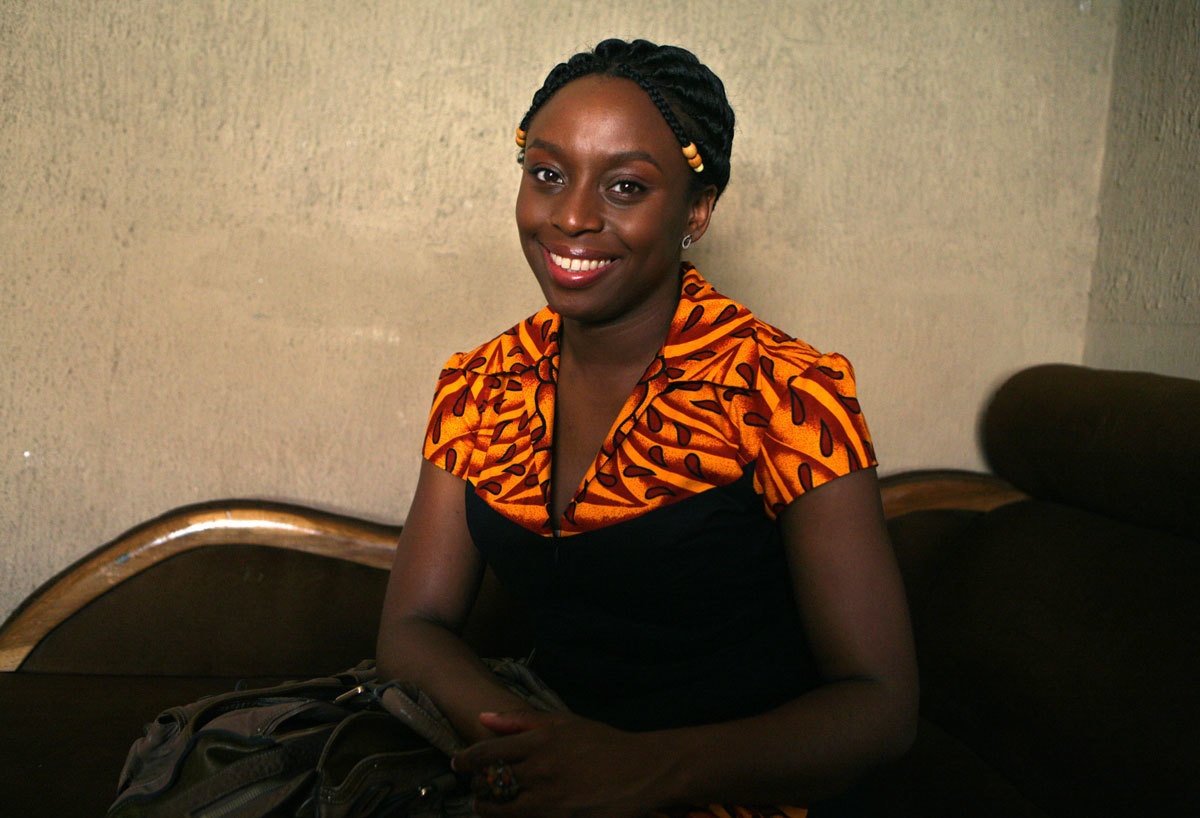Chimamanda Ngozi Adichie is calling bullshit on the idea that you’re supposed to be likeable. The author of Americanah and Half of a Yellow Sun used her acceptance speech at the Girls Write Now Awards in New York to advise women to “forget about likeability”. It was her contention that the desire to be inoffensive and to please, something ingrained especially in young women by gender stereotypes, was stopping women and girls from telling their stories truthfully:
“I think that what our society teaches young girls – and I think it’s also something that’s quite difficult for even older women, self-confessed feminists to shrug off – is that idea that likeability is an essential part of you, of the space you occupy in the world, that you’re supposed to twist yourself into shapes to make yourself likeable, that you’re supposed to hold back sometimes, pull back, don’t quite say, don’t be too pushy, because you have to be likeable. And I say that’s bullshit.”
Is she saying that women must be unlikeable to be real? No; but because the definitions society has for what is ‘ladylike,’ ‘womanly’ or ‘feminine’ are so narrow, conforming to them will inevitably be a form of pretence for many women. For these women, speaking their truth will be interpreted as being contrary, aggressive (or ‘manly’) and unhelpful. But if women and girls do not articulate the true diversity of their experience, how will those narrow definitions ever be widened, be made more inclusive? People didn’t like the Suffragettes very much – nor the Stonewall protestors, nor Martin Luther King for that matter. They suffered police brutality, were arrested and derided in the media; but would we rather that they had been more ‘polite’?
“I think it’s important to tell your story,” Ngozi Adichie continued, adding, “it’s important to tell your story truthfully, and I think that’s a difficult thing to do, to be truly truthful, because it’s only natural to be concerned about offending people or possible consequences.” In countries that do not protect women’s rights, those consequences can make it impossible for them to speak their truth, because they face losing their job, their family, being beaten, arrested or even killed for being true to themselves. But for those of us privileged enough not to face these extremes, who merely fear being disliked, Ngozi Adichie says: forget about likeability; there are more important things to achieve.
The problem of likeability has blighted women, and feminism, for centuries; ‘difficult women’ are rarely interpreted as the equals of male ‘freedom fighters’ in history, even on reflection. Today, feminists are told, “Don’t call yourself a feminist – we need a new word” and are advised to reassure people that they aren’t ‘an angry feminist’. The anger of women, against misogyny like Protein World’s Beach Body Ready adverts for example, is so often dismissed as a form of hysteria, rather than an authentic – and necessary – reaction to the damaging structure of the patriarchy. Protein World’s Head of Marketing Richard Staveley reacted to the backlash by tweeting, “This is not feminism, it is extremism,” telling one woman, “surely as a feminists [sic] Vicky, you understand that no one takes you seriously?”. As Ngozi Adichie says in We Should All Be Feminists, “Gender as it functions today is a grave injustice. I am angry. We should all be angry. Anger has a long history of bringing about positive change”.
One episode that epitomises this ‘play nice’ diktat was the backlash against the feminists who criticised Emma Watson’s He for She speech at the UN. “Don’t nitpick!” they were told, Watson is a huge celebrity and she’s done this very high profile thing for your cause. No matter that her comments reinforced the gender binary that hurts both women and men, nor that it adopted a men-as-our-saviours narrative, nor the fact that it regurgitated a decidedly white, middle class perspective. To those critiquing Watson’s speech, the message was: be polite, be graceful and grateful, stop this in-fighting, or ‘catfighting’. As if feminism is some flimsy concept that might collapse under the application of a little intersectional rigour!
It isn’t aggressive to debate the finer points (and come on, how fine a point is “don’t reinforce the gender binary”?) of a social movement with 50 years of modern history, and, of course, a much longer history of women’s rights before that. It will be perceived that way because the patriarchy has created and cemented the image of an acceptable women, and so to break down this bullshit icon, women are going to have to behave differently from what’s expected, and often look differently to what is approved of. There is a long way to go when something as passive as leaving your hair to grow naturally on your body is seen as combative, and whilst there is such a negative reaction to Lena Dunham showing her body and writing honestly about her experience of sexual assault, for example.
It is difficult, and can be frightening, to risk being disliked; we all need support networks of friends and family. But if you are liked because you have successfully pretended to be something you’re not, then how enriching will your relationships with those who ‘like’ you be? As Nogozi Adichie said, “the world is such a wonderful, diverse, and multifaceted place that there’s somebody who’s going to like you; you don’t need to twist yourself into shapes.” Living a lie might be convenient for others, because it helps them to ignore the systemic inequalities that disadvantage women, people of colour, lgbtq people and other oppressed and marginalised groups. But freedom and equality are more important than the convenience of those propped up by the patriarchy. Live your life, speak your truth and don’t let the bastards grind you down.
Credits
Text Charlotte Gush
Photography via
